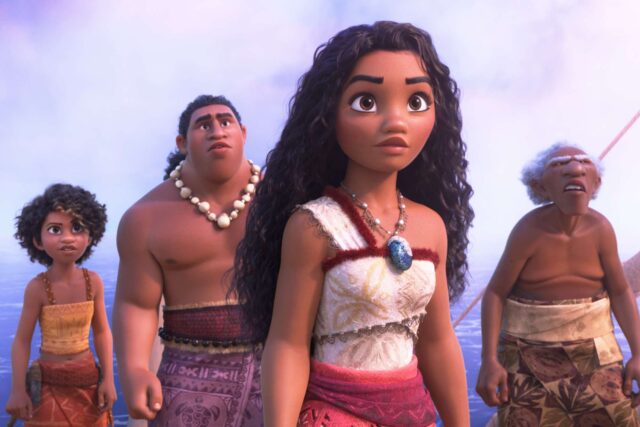:max_bytes(150000):strip_icc():format(jpeg)/Moana-2-052924-23645c95d22c4895944e7461b2354f8b.jpg)
Disney has been hit with a copyright lawsuit alleging that the wildly popular Moana franchise was nearly entirely lifted from a decades-old screenplay without the writer’s consent.
In a lawsuit reviewed by Entertainment Weekly that was filed Friday, animator Buck Woodall claims that former Mandeville Films development director Jenny Marchick violated his copyright by secretly passing to Disney materials he produced confidentially for her two decades ago. That material, Woodall alleges, became Moana and Moana 2.
A court ruling last November prevented Woodall from bringing an identical suit against the original 2016 film because the filing would have come too late. Though Woodall’s suit filed Friday contains numerous allegations about the first Moana film, the substance of his argument focuses on the sequel released in November 2024.
Reps for Disney did not immediately respond to Entertainment Weekly‘s request for comment.
Woodall’s suit alleges a “fraudulent enterprise that encompassed the theft, misappropriation, and extensive exploitation of Woodall’s copyrighted materials” spearheaded by Marchick, who is now head of development at DreamWorks Animation. Mandeville Films had a first-look deal with Disney, as well as offices on the Burbank, Calif., Disney lot at the time of Marchick’s dealings with Woodall.
Want more movie news? Sign up for Entertainment Weekly’s free newsletter to get the latest trailers, celebrity interviews, film reviews, and more.
The animator claims that he delivered to Marchick “extremely large quantities of intellectual property and trade secrets” related to a project variously called “Bucky” and “Bucky the Wave Warrior” between 2003 and 2008. Those materials included a completed screenplay, character illustrations, budgets, a fully animated concept trailer, storyboards, background image references, and more.
Woodall also notes that he received copyright protection on these materials in 2004 that was updated in 2014.
Disney
“Bucky” was never developed, but Woodall claims that Marchick was able to pass his materials to Disney by exploiting legal loopholes inherent to the “tapestry of confusion” that is Disney’s elaborate corporate structure. According to Woodall, “Bucky” not only became Moana without his consent, but continued to serve as the basis for Moana 2 as well.
The suit enumerates a number of similarities between Woodall’s undeveloped script and Moana and Moana 2. Like “Bucky,” the first film follows a teenager on a voyage in an outrigger canoe across Polynesian waters to save Polynesian land. It features the Polynesian belief in spiritual ancestors who manifest as animal guides, and a number of specifics including a symbolic necklace, navigation by stars, a lava goddess, and a giant creature disguised as a mountainous island.
As for Moana 2, the suit notes that details such as the rooster and pig companions, a mission to break a curse, a whirlpool that leads to an oceanic portal, and an encounter with the Kakamora warrior tribe were all lifted without consent from “Bucky.”
While Woodall claims in the new suit that Disney failed to deliver all documents requested in the prior suit, Disney did submit documents relating to Moana including story ideas, early screenplay drafts, research notes, and pitch materials.
Woodall seeks as damages 2.5 percent of Moana‘s gross revenue, equivalent to $10 billion, and a court order affirming his copyright and barring further infringement.



